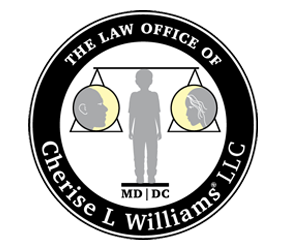A Practical Approach to Prenups—Why They’re a Smart Investment in Your Future
March, 2025
Dear Family Law Community,
Prenuptial agreements often get a bad reputation, but they are actually one of the smartest financial planning tools an engaged couple can use. Rather than predicting divorce, a well-crafted prenup provides clarity, protects both partners, and sets expectations for the future. For successful professionals and those with significant assets, a prenuptial agreement ensures that both parties enter marriage with a shared understanding of their financial rights and responsibilities.
Breaking the Prenup Stigma
A prenup isn’t about distrust—it’s about being proactive. Many engaged couples, especially high-achieving professionals, have built successful careers and accumulated wealth before marriage. Others may have family inheritances, business interests, or financial obligations they want to secure. A prenup isn’t just for one party’s protection; it safeguards both spouses from potential financial uncertainty.
Key Considerations for Your Prenuptial Agreement
- Transparency & Full Disclosure – The foundation of any good prenup is honesty. Both parties must fully disclose their assets, debts, and income sources.
- Fair & Balanced Terms – Courts are more likely to enforce an agreement if it is fair to both spouses. A prenup should ensure neither party is left at a significant disadvantage.
- Protection for the Breadwinner – The primary earner in the relationship should have a say in the amount of alimony they are willing to pay in case of divorce. A prenup allows the breadwinner to set reasonable limits on spousal support while still ensuring fairness.
- Protection of Accumulated Benefits – For professionals who have built significant retirement funds, stock options, or business interests, a prenup can specify how those assets are treated in case of a separation. This prevents one spouse from unjustly benefiting from the other's lifelong earnings.
- Protection for Stay-at-Home Spouses – If one spouse plans to step back from their career to care for children or support the household, a prenup can establish financial security for them in the event of divorce. This can include provisions for spousal support or compensation for time spent outside the workforce.
- Defining Separate vs. Marital Property – Clarifying what remains separate and what becomes shared property reduces future disputes.
- Estate Planning & Inheritance Protection – A prenup can complement an estate plan by ensuring assets remain within family lines or intended beneficiaries.
How a Prenup Strengthens Your Relationship
Discussing a prenup requires open conversations about finances, expectations, and future goals. Instead of avoiding the topic, couples who engage in this discussion early build trust and long-term financial harmony.
How to Approach a Prenup Conversation
The key is to frame the discussion as a financial planning tool, not a preparation for failure. Couples should discuss their financial values, long-term goals, and expectations before involving an attorney.
Consulting a Prenuptial Agreement Lawyer
A prenuptial agreement lawyer can guide you through the process, ensuring that your agreement is enforceable and tailored to your specific situation. Whether you are a high-income professional seeking to protect your hard-earned assets or a stay-at-home spouse looking for financial security, a prenup offers peace of mind and security for both partners.

